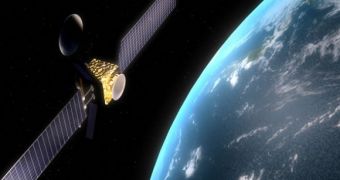French astronaut Jean-Loup Chretien, the first European to effectuate a manned flight in a Franco-Soviet mission conducted 30 years ago, was celebrated yesterday by the cream of the spatial Russian society.
Despite the commemoration of the immeasurable Russian contribution to the world's space industry, the ceremony was held in no euphoric atmosphere, reports Le Figaro.
Roskosmos, the Russian Space Agency, had to deal with an unpredicted and fairly inglorious incident. The contact between ISS and the flight controller center situated near Moscow was all of a sudden interrupted. The accident was caused by an excavation company which had sectioned the cable.
The connection was reestablished, but even so, it added to the long list of incidents registered during the past year, so it wasn’t easy to overcome.
In August 2011, the supply ship called Progress directed towards ISS disintegrated after following a wrong orbit. The incident caused Vladimir Putin's dismissal, after that of the general director of Roskosmos and the leader of the Spatial Research and Construction Center.
Consisting of more than 100 companies and employing over 250,000 people, the Russian space industry as a whole, which got its start in the Soviet Union society era, has entered a deeply troubling crisis.
Russian officials, well aware of the worrying situation, are struggling to find solutions. They say the problems go far deeper than just the recent unsuccessful launches.
Roskosmos' top brass are criticizing the extremely high costs associated to manned flights. The only Russian spatial base, situated in Kazakhstan, from where international equipment is launched in the direction of the ISS four times a year, brings the Russian government an expenditure of $115 million (€903.2 million).
“Unless we undertake extreme measures, the sector will be uncompetitive within three-four years,” says Vladimir Popovkin, leader of Russian Space Agency.
“If nothing changes, we won’t be able to sell [Russian space technology] in 2015, because Western equipment will be priced 33 to 50 percent lower,” he adds, as cited by Rianovosti.

 14 DAY TRIAL //
14 DAY TRIAL //